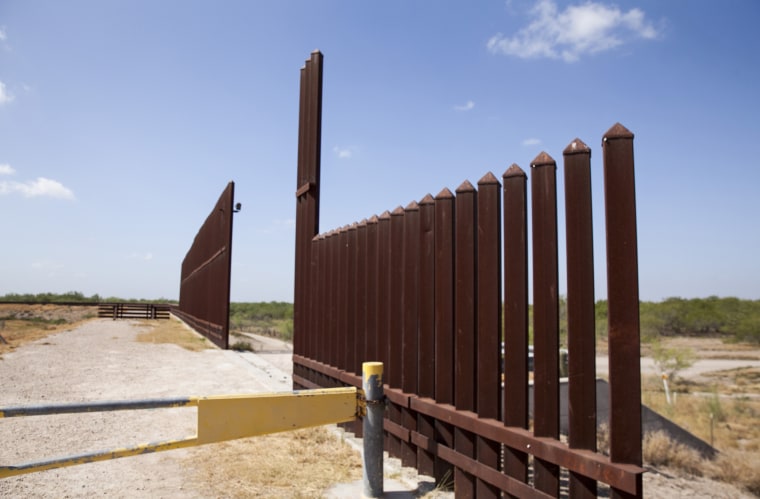HOUSTON — A federal appeals court on Friday revived a House challenge of President Donald Trump’s use of Defense Department money to build a border wall after Democrats refused to provide funding he requested.
The U.S. Court of Appeals for the District of Columbia reversed a lower court’s dismissal of the House Democrats’ lawsuit. The appeals panel cited the House's argument that it was cut out of its “constitutionally indispensable legislative role” when Trump unilaterally moved about $8 billion to border wall construction.
Congress’ power to appropriate spending “is a core structural protection of the Constitution — a wall, so to speak, between the branches of government that prevents encroachment of the House’s and Senate’s power of the purse,” the panel wrote.
The case now returns to the court of U.S. District Judge Trevor McFadden, a Trump appointee, who had initially ruled that House Democrats lacked the authority to sue in April 2019. McFadden wrote that the Constitution “does not grant them standing to hale the Executive Branch into court claiming a dilution of Congress’s legislative authority.”
The Justice Department did not immediately comment.
House Democrats sued three months after the end of the longest government shutdown in U.S. history, triggered by Trump's demand for border wall funding.
The president later signed a funding bill that included $1.4 billion for border barriers, short of the $5.7 billion he had demanded from Congress. But he then declared a national emergency to secure billions more in funding denied by Democrats controlling the House, in part by taking money for military housing and counterdrug programs.
The move triggered several legal challenges, including the one by House Democrats. Another appeals court ruled in June against the transfer of money from military construction projects. But the U.S. Supreme Court in July declined to order wall construction stopped while the case continued. The high court's four liberal justices dissented. One of those four, Justice Ruth Bader Ginsburg, died Sept. 18.
The three-judge panel consisted of Senior Circuit Judge David B. Sentelle, nominated to the court by former President Ronald Reagan, and two nominees of former President Barack Obama: Patricia Millett and Robert Wilkins.
Building a border wall was one of Trump's signature campaign pledges four years ago, though he promised then that Mexico would pay for the wall.
The U.S. Border Patrol says it has completed 321 miles (517 kilometers) of wall during the Trump administration, though almost all of that is replacing existing barriers.
